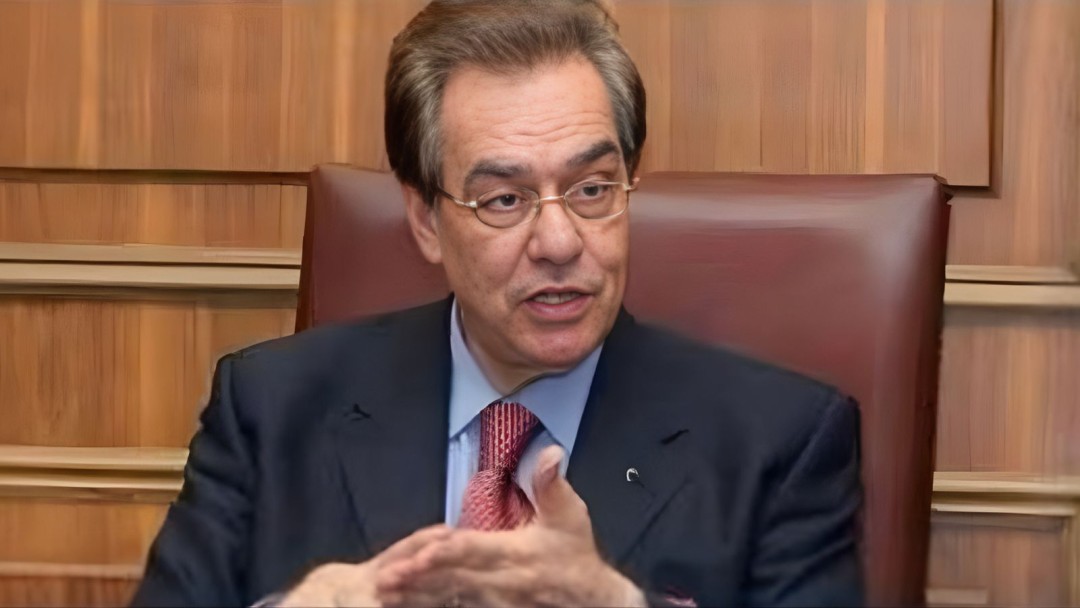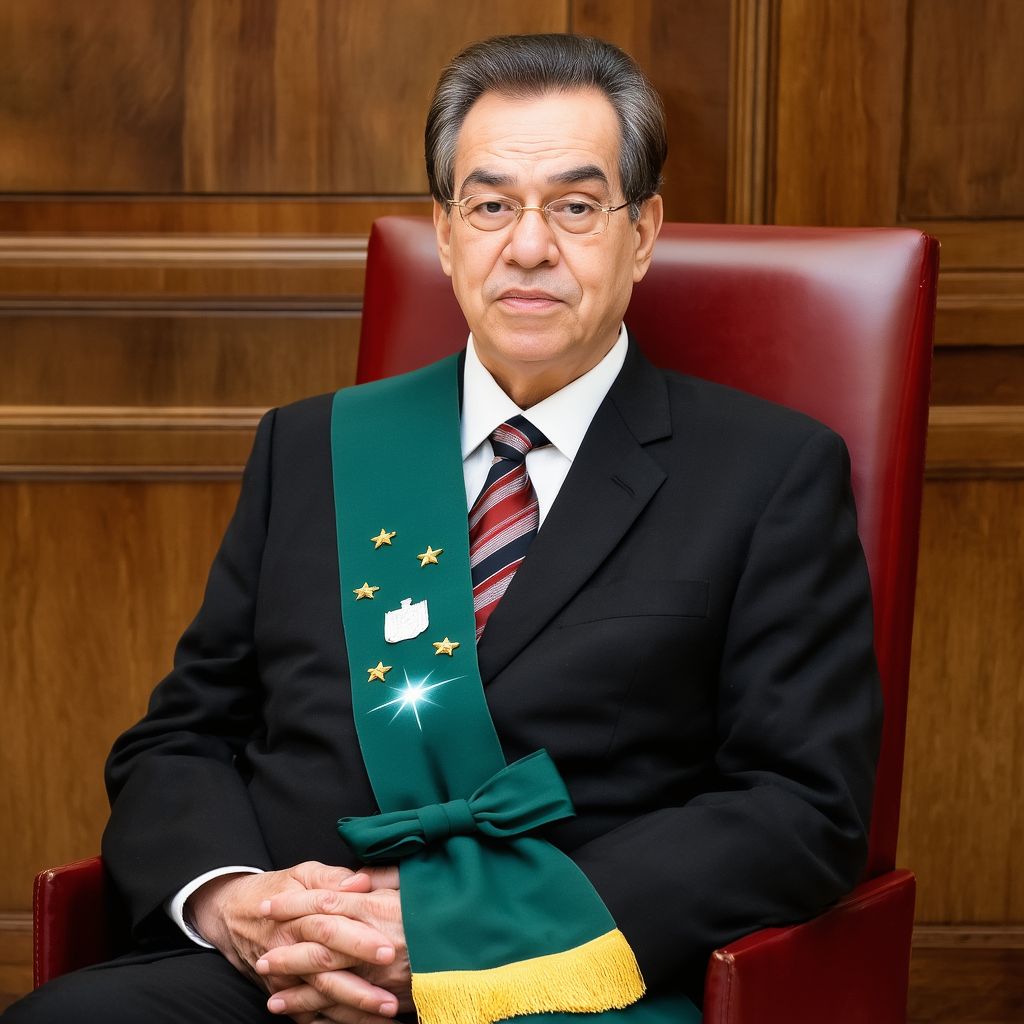
November 20, 2025 - Few figures in modern Egyptian history embody the balance between law, governance, and moral integrity as profoundly as Adly Hussein. A former Public Prosecutor, two-time governor, cultural diplomat, and international advocate for justice, Hussein’s career charts the journey of a man who consistently chose principle over expedience. Whether confronting presidential orders, reshaping governorates, or defending Egypt’s cultural heritage on the world stage, his life reminds us that true leadership is measured not by titles, but by the courage to act with conscience.
Early Years & Judicial Integrity
Born into a generation that witnessed the shifting tides of Egyptian politics, Adly Hussein entered the judiciary with a conviction that law must serve both justice and humanity. For two decades, he served in the Public Prosecution, including ten pivotal years as Attorney General of the Supreme State Security Prosecution during the presidencies of Anwar Sadat and Hosni Mubarak.
The cases he handled were among the most politically sensitive in the nation’s history. Extremist groups, civil unrest, assassination attempts, and espionage accusations crossed his desk. Yet it was the infamous “Centres of Power” case in the 1970s that defined his early reputation. Senior officials including Egypt’s Ministers of Defence, Interior, and Intelligence were accused of plotting to overthrow Sadat.
At just 28 years old, Hussein stood at a crossroads. The president himself had issued a handwritten order for an investigation, and the political atmosphere was charged. After months of rigorous inquiry, Hussein concluded that no coup attempt had taken place. Instead, the evidence pointed only to political pressure on the president, not treason. When he met Sadat privately, he refused to bend to political will. “I will not convict anyone of a crime that never happened,” he told the president.
Hussein’s advice to refer the matter to a special court for lesser charges was accepted. Sadat, preparing for the 1973 war, responded with admiration: “I want to build a nation, not execute people.” For Hussein, it was a triumph of principle over fear, and it cemented his reputation as a jurist unwilling to trade truth for convenience.
Other cases reflected the same blend of firmness and empathy. He prosecuted extremist organizations such as al-Jihad and Takfir wal-Hijra, investigated the 1977 bread riots, and probed the assassination of journalist and minister Youssef El-Sebai. In the aftermath of the Camp David Accords, Hussein famously dismissed charges against Sinai youth accused of possessing foreign currency without authorization. After seven years of Israeli occupation, he reasoned, they were unfamiliar with Egyptian law. “They were strangers in their own homeland,” he said, emphasizing that justice must always consider humanity.

The Reluctant Governor
If Hussein had his way, he might have remained in the judiciary for life. But Egypt’s leadership had other plans. In an unexpected move, he was appointed Governor of Monufia for eight years, followed by Governor of Qalyubia for twelve a record breaking twenty year tenure that made him one of Egypt’s longest serving governors.
For a man trained to weigh evidence in silence, stepping into the political spotlight was not a welcome shift. “In the judiciary, only God and my conscience guided me. As governor, I had ministers, a prime minister, and a president above me. But I never shed my judge’s robe,” he later recalled.
Despite his reluctance, Hussein brought judicial discipline to executive governance. His daily routine included dawn meetings with local leaders, visits to schools and hospitals, and direct engagement with citizens. Education, healthcare, and housing became cornerstones of his agenda. Villages once neglected saw new infrastructure, hospitals were upgraded, and schools expanded. In both Monufia and Qalyubia, Hussein’s imprint was visible in tangible developmental leaps.
His efforts did not go unnoticed. During Kofi Annan’s tenure as UN Secretary-General, Hussein was invited to deliver a speech at the United Nations in New York an honor rarely bestowed on a provincial governor. Egypt’s then-Foreign Minister Ahmed Aboul Gheit praised him, noting: “No one in UN history has done this before.” For Hussein, it was less about recognition and more about proving that local governance, when driven by conscience, could inspire international respect.
Yet success came at a personal cost. Hussein frequently clashed with ministers who sought to impose control. He submitted resignation requests more than twenty times, seeking to return to the judiciary, but Mubarak consistently refused. “He saw my work, not my suffering,” Hussein said. In 2011, amid the January 25 Revolution, Hussein finally stepped down not out of exhaustion, but conviction. “The country needed new voices,” he explained, once again choosing principle over position.
A Voice for Culture & Dialogue
Beyond law and governance, Hussein’s legacy is also one of cultural defence and global bridge-building. For more than a decade, he served as President of the Euro-Mediterranean Partnership Committee in Palermo, Italy, bringing together leaders from across the region to tackle urban and cultural challenges.
Later, he became a member of UNESCO’s Intangible Cultural Heritage Committee and Vice President of the Commission for Interfaith and Intercivilizational Dialogue in Italy, roles that expanded his influence on the global stage.
In these capacities, Hussein fought not only for development but also for Egypt’s identity. He resisted attempts by Israel to register traditional Sinai dress and Egyptian molokhia under UNESCO. “Culture is our soul,” he argued. “Losing it means losing ourselves.” His defence of Egypt’s cultural heritage became an extension of his judicial philosophy protecting the intangible rights of a people, just as he once protected the legal rights of citizens.
Internationally, he continues to contribute to dialogue on peace and human rights. In South Korea, he works with a UN-affiliated peace organization, preparing annual conferences and delivering lectures on conflict prevention. His interventions, often punctuated with humour, highlight the clarity of his thinking. When a TV host once confused the Bangalore Principles of Judicial Conduct with a university professor, Hussein gently corrected him with a smile: “It’s a city in India.”
Simple Wisdom, Lasting Impact
Hussein’s stories reveal a blend of gravity and lightness. In one case, a group of university students accused of being a “terrorist cell” turned out to be nothing more than a sports club. By challenging the terminology, Hussein saved them from wrongful prosecution and underscored the importance of language in justice. “Words have weight,” he insists a lesson he applies both in courtrooms and in public life.
His philosophy of leadership is equally straightforward. Titles and fame, he warns, are illusions. “Success is doing the right thing when no one is watching.” To Egypt’s youth, his advice is both practical and visionary: “Master your field. Know your country its laws, its culture, its history. Then open yourself to the world.”
For him, ignorance is the greatest obstacle to leadership. He recalls training parliamentary candidates who could not name their own governor or describe local laws. “How can you lead if you don’t know your roots?” he asks.
A Legacy That Endures
Today, Adly Hussein serves as Chairman of the Dispute Settlement Committee, where he advocates for digital transformation of Egypt’s judicial system. By introducing electronic filing and streamlining procedures, he continues his lifelong mission of making justice more accessible and transparent.
His evenings are often spent quietly with family or preparing university lectures on human rights and judicial independence. Yet even in semi-retirement, his presence is felt across international forums, from Cairo to Seoul.
Adly Hussein’s life offers Egypt and the wider world a blueprint for leadership rooted in conscience. His story demonstrates that power can be wielded responsibly, that culture must be defended as fiercely as borders, and that integrity remains the highest form of service.
In a nation shaped by history and challenged by change, Hussein stands as proof that the courage to uphold truth is not merely a personal virtue it is a national necessity.
Media Contact
Company Name: Authentic Digital Solutions
Contact Person: Kristen Myers
Email: Send Email
Country: United States
Website: https://authenticdigitalsolutions.com/





